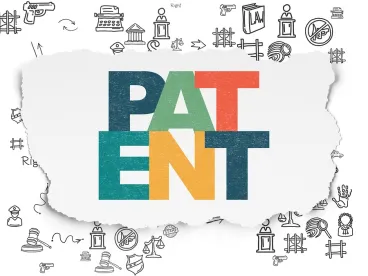The Patent Trial and Appeal Board (“PTAB”) recently sent a warning to alleged infringers not to wait for the one year deadline to file IPR petitions, or risk discretionary denial. On May 13, 2020, the PTAB exercised its discretion to deny institution of an inter partes review (“IPR”) petition filed by Apple due to the advanced state of a parallel district court litigation in the Western District of Texas. In Apple Inc. v. Fintiv, Inc., IPR2020-00019, Paper 15 (PTAB May 13, 2020), the PTAB applied six factors that it previously set forth in a newly precedential order. The purpose of these factors is to balance efficiency and fairness when deciding requests for a discretionary denial due to the advanced state of a parallel proceeding. Despite applying these new factors, open questions remain regarding whether the PTAB will deny institution in circumstances where an IPR challenges additional claims or uses additional art from the district court proceeding, even in the face of imminent trial.
The six factors applied by the PTAB are:
-
whether the court granted a stay or evidence exists that one may be granted if a proceeding is instituted;
-
proximity of the court’s trial date to the Board’s projected statutory deadline for a final written decision;
-
investment in the parallel proceeding by the court and the parties;
-
overlap between issues raised in the petition and in the parallel proceeding;
-
whether the petitioner and the defendant in the parallel proceeding are the same party; and
-
other circumstances that impact the Board’s exercise of discretion, including the merits.
The PTAB found that because the parties are the same in the district court litigation, the claims and prior art are identical in the district court, the district court trial is scheduled to begin two months before the PTAB would reach a final written decision, and because the parties had already made significant investments on claim construction and invalidity contentions in the district court, the second, third, fourth, and fifth factors weighed in favor of denying institution. Additionally, because the first and sixth factors did not weigh for or against discretionary denial, the PTAB exercised its discretion and denied institution.
The order also addressed the public policy considerations. Specifically, the PTAB explained that concerns of forum shopping are addressed by district courts, and if the venue is not proper then a parallel district court case would be transferred to another jurisdiction. The PTAB was satisfied that the Western District of Texas had done this analysis in the related litigation when denying a motion to transfer. With regard to Petitioner’s time-bar argument, the PTAB explained that “considerations of the state of a parallel proceeding may require petitioners to act more quickly than the maximum amount of time permitted by Congress.” Finally, the PTAB again emphasized that parallel proceedings in an advanced state implicate efficiency and fairness, which is what the PTAB and the parties are to consider when applying the six factors.
Evidence suggests that procedural denials at the PTAB have “exploded since 2018,” with the PTAB denying 11.8% of institutions for procedural reasons in 2019. The § 314(a) discretionary denial factors applied by the panel in the Apple IPR cement another way for the PTAB to deny institution without considering the merits of the petition. Thus parties litigating before the PTAB where a parallel district court litigation is in an advanced state should consider the six factors and provide arguments in that context.
Going forward, accused infringers should consider if filing an IPR petition sooner rather than waiting for the one year limit would move certain factors to favor denial of the petition. In addition, accused infringers may consider including art in the petition that is not at issue in the district court (or combinations that are not at issue in the district court) and/or challenge additional claims that are not asserted in order to ensure that there are issues unique to the PTAB. Likewise, patent owners in fast-moving jurisdictions should evaluate the factors when drafting the patent owner preliminary response.






 />i
/>i
